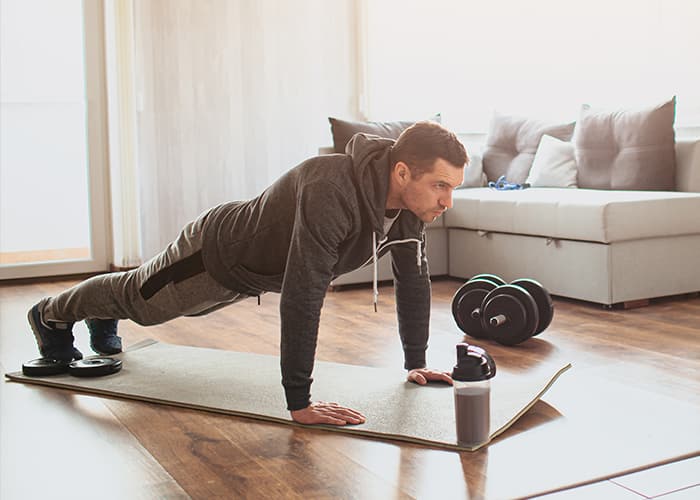
3 Ways to Know You’re Choosing the Best Vitamins and Supplements
Published: January 2020
The supplement world is filled with claims that can make choosing the right vitamins confusing, to say the least. So how can you tell which vitamins and minerals are best for you, or if you even need to supplement?
Your individual health needs will determine what nutrients you should be taking, but here’s some general guidelines for optimal health—as well as our recommendations for specific health goals.
Why do we even need to take dietary supplements?

Before we discuss which supplements to take, first let’s hit upon why we even need to get nutrition from small capsules, powders, liquids, gummies or chewables. Food delivers vitamins and minerals, after all—and, with the right seasoning, it actually tastes pretty good, most of the time!
It all comes down to whether we’re hitting Recommended Daily Allowances (RDAs) for these nutrients from diet alone. If every day, you eat five to seven servings of fruit and vegetables that are grown in nutrient-rich soil, and otherwise eat a balanced diet, you may be meeting your nutrient needs from diet alone. However, realistically, this isn’t the case for most people. According to the 2015–2020 dietary guidelines for Americans, vitamins A, D, E and C are categorized as under-consumed nutrients of public health concern.
Frankly, even for those of us who do eat the rainbow, the RDAs are often inadequate to support optimal health; they are the bare minimum to avoid deficiency. But even if we consume the minimum, shouldn’t we strive for the best possible health?
So, here’s how to figure out whether you need some added help—and where to find it.
1. Find out what you’re missing from your diet

Due to various factors — such as age, health status, genetics, environment, lifestyle and health goals — you may seek to fill in nutritional gaps with dietary supplements such as individual vitamins or a multi-nutrient formula.
As a rule of thumb, most people will benefit from supplement formulas that include vitamin D and vitamin B12, which are common deficiencies.
Also consider what foods you tend to avoid. If you simply can’t stomach vegetables, a high-quality multivitamin is a good idea. And, if fatty fish never crosses your plate, you might want to add an omega-3 supplement.
Not sure where to start? Blood testing can identify any deficiencies, and you can use that information to make supplementation decisions.
2. Consider your specific health goals

Vitamins and minerals are a great way to make sure you’re getting all of the nutrients you need, but you can also seek supplements to help you achieve specific health goals. Various, targeted formulations can help you optimize the normal function of various processes within your body—from getting a better night’s sleep, to nootropic formulas that support a more nimble mind.
What if your main goal is a leaner body? Join the club! These products are tougher to navigate, because the market is overflowing with claims that would seem to defy logic. (If you really think there’s a magic capsule that will take the place of hours in the gym, or will “undo” the bag of chips you just ate, we hate to be the bearer of bad news, but there’s no such thing!)
However, there are scientifically based formulas that support a hardworking body as it slims down and leans up! Here’s how to choose weight management and workout supplements that actually work.
-
Supplements that support your healthy weight goals
If your goal is healthy weight management, there are supplements that can help you along your journey, as long as you’re also following a healthy, doctor-recommended eating plan. Certain nutrients support a normal (as opposed to ravenous!) appetite, and help you better metabolize the fats and sugars in your diet.
-
Choosing workout supplements
If you’re working hard at the gym, supplements can help “spot you” so you can push yourself to the max. Protein powder and coenzyme Q10 (CoQ10) are two of the best workout supplements. Look for a protein powder that contains creatine (supports muscle strength), whey (supports lean muscle) and an amino acid profile including glutamine (supports muscle recovery and endurance).
3. Be really picky

Now that you know what supplements to look for, how do you know which specific products to add to your regimen? The best vitamins and supplements are those of high quality that provide health benefits demonstrated by clinical research studies. Keep in mind that individual results will vary because everybody is different, and our bodies don’t always process foods, supplements and medications in the same way.
To ensure quality, look for supplements that have been tested for purity and potency.
Ready, set, supplement!
When it comes to our health, there is no one-size-fits-all approach. If you need assistance finding the best supplements for your individual needs, call us at 1-800-226-2370. You can also take a Health Needs Quiz to help get you started.
References
- "2015-2020 Dietary Guidelines." U.S. Department of Health and Human Services and U.S. Department of Agriculture, December 2015, https://health.gov/our-work/food-nutrition/previous-dietary-guidelines/2015
- "Vitamin B12." National Institutes of Health Office of Dietary Supplements, March 2018, https://ods.od.nih.gov/factsheets/VitaminB12-HealthProfessional/
- Cribb, Paul J et al. "A creatine-protein-carbohydrate supplement enhances responses to resistance training." Med Sci Sports Exerc., November 2007, https://pubmed.ncbi.nlm.nih.gov/17986903/
- Dudgeon, Wesley D et al. "Effect of Whey Protein in Conjunction With a Caloric-Restricted Diet and Resistance Training." J Strength Cond Res., May 2017, https://pubmed.ncbi.nlm.nih.gov/28415067/
- Ha, Ewan et al. "Functional properties of whey, whey components, and essential amino acids: mechanisms underlying health benefits for active people (review)." J Nut Biochem., May 2003, https://pubmed.ncbi.nlm.nih.gov/12832028/



